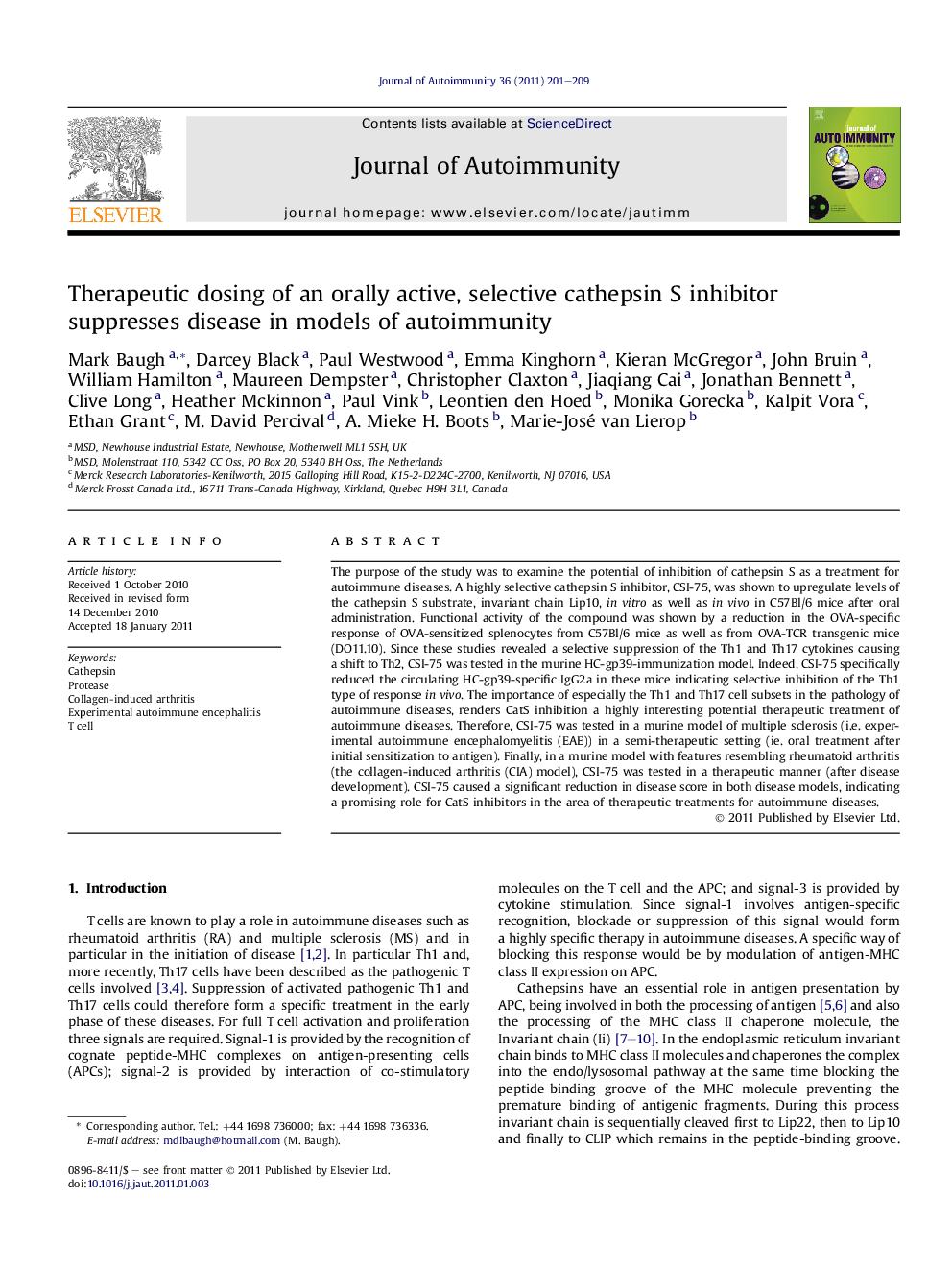| Article ID | Journal | Published Year | Pages | File Type |
|---|---|---|---|---|
| 6119424 | Journal of Autoimmunity | 2011 | 9 Pages |
Abstract
The purpose of the study was to examine the potential of inhibition of cathepsin S as a treatment for autoimmune diseases. A highly selective cathepsin S inhibitor, CSI-75, was shown to upregulate levels of the cathepsin S substrate, invariant chain Lip10, in vitro as well as in vivo in C57Bl/6 mice after oral administration. Functional activity of the compound was shown by a reduction in the OVA-specific response of OVA-sensitized splenocytes from C57Bl/6 mice as well as from OVA-TCR transgenic mice (DO11.10). Since these studies revealed a selective suppression of the Th1 and Th17 cytokines causing a shift to Th2, CSI-75 was tested in the murine HC-gp39-immunization model. Indeed, CSI-75 specifically reduced the circulating HC-gp39-specific IgG2a in these mice indicating selective inhibition of the Th1 type of response in vivo. The importance of especially the Th1 and Th17 cell subsets in the pathology of autoimmune diseases, renders CatS inhibition a highly interesting potential therapeutic treatment of autoimmune diseases. Therefore, CSI-75 was tested in a murine model of multiple sclerosis (i.e. experimental autoimmune encephalomyelitis (EAE)) in a semi-therapeutic setting (ie. oral treatment after initial sensitization to antigen). Finally, in a murine model with features resembling rheumatoid arthritis (the collagen-induced arthritis (CIA) model), CSI-75 was tested in a therapeutic manner (after disease development). CSI-75 caused a significant reduction in disease score in both disease models, indicating a promising role for CatS inhibitors in the area of therapeutic treatments for autoimmune diseases.
Related Topics
Life Sciences
Immunology and Microbiology
Immunology
Authors
Mark Baugh, Darcey Black, Paul Westwood, Emma Kinghorn, Kieran McGregor, John Bruin, William Hamilton, Maureen Dempster, Christopher Claxton, Jiaqiang Cai, Jonathan Bennett, Clive Long, Heather Mckinnon, Paul Vink, Leontien den Hoed, Monika Gorecka,
